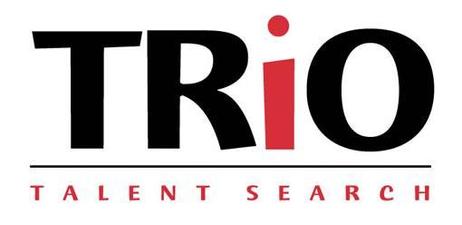Undoubtedly, success in college begins at the secondary level, with proper course selection, stellar academic performance, and career focus during the high school years. However, students that come from disadvantaged backgrounds or who have never had a family member attend college face nearly insurmountable obstacles when preparing for the possibility of postsecondary education. To give some of these students a chance at a college degree, the Talent Search Program was born.
What is the Talent Search Program?
According to the Ed.gov website, the Talent Search Program is designed to help disadvantaged youth with the potential to succeed in postsecondary education. This program identifies youth that falls into this category and provides them with the financial, career, and academic support they need to succeed in high school and beyond. Talent Search also looks for individuals who have not yet completed their secondary or postsecondary education and provides necessary resources to encourage those individuals to return to the world of academia to earn their high school equivalency and a postsecondary degree or certificate.
The programs offered through the Talent Search Program include:
- Aptitude assessments and counseling to prepare students for the rigors of college
- Mentoring and tutorial programs to come alongside students and help them succeed
- Counseling services to assist students with financial challenges that might arise
- Career exploration resources to help students plan for their futures
- Information about various postsecondary options available
- Alternative education options for those returning to finish their secondary education
These programs are geared toward helping students succeed in their secondary efforts, but the primary focus is on getting these students into a post-secondary institution. It targets students who are generally underrepresented in most postsecondary schools, such as students who are not English proficient, students with disabilities, homeless students, and those living in foster care. In addition, the program assists students from low-income households and those who have been disconnected from secondary education for whatever reason.
The Talent Search Program works through grants awarded to postsecondary institutions, public agencies or organizations, and community-based organizations that work with disadvantaged youth. The grants are awarded to specific projects designed to help this demographic of the student population get the tools and support they need to succeed in an academic environment. Talent Search Program competitions are held every four years. At that time, lucky organizations and postsecondary schools may receive a piece of the pie to help underprivileged students in their communities achieve academic success.
This video offers an overview of the Talent Search program.
Mid Michigan Community College Recipient of Talent Search Grant this Year
The U.S. Department of Education has awarded a Talent Search grant to Mid Michigan Community College this year, according to a report in the Midland Daily News. The grant, totaling nearly $230,000, will be spread throughout five local school districts: Beaverton, Clare, Farwell, Gladwin, and Harrison. The money will be used to help families prepare students for college through tutoring services, academic advising, and informative workshops.
“The prospect of serving local students through this program is exciting,” Brent Mishler, director for Talent Search, told the News. “We’ll be directly connecting college personnel with middle and high school students and providing those students with hands-on assistance to continue their educations past high school.”
This video reports on the federally-funded TRIO programs.
Bunker Hill Community College Gets More than $1 Million in Grants.
Another school set to receive benefits from the Talent Search program is Bunker Hill Community College. According to a press release at Market Watch, this school has been awarded a five-year grant of $230,000 annually to help students in the city of Chelsea prepare for college. Chelsea is one of the most ethnically diverse populations in Massachusetts, and many of the students at the high schools in the city come from low-income families without family members who have previously attended college.
Bunker Hill Community College plans to distribute the grant money to Chelsea High School and Eugene Wright Middle School. Students at these schools who meet the qualifications will receive financial, personal, and academic assistance to help them complete high school and pursue postsecondary education. Programs implemented might include tutoring and mentoring, academic counseling, and career awareness.
Talent Search Programs Already in Place
While some community colleges around the country are gearing up to implement Talent Search programs in their areas, other schools already boast programs in full swing. Virginia Highlands Community College offers information about the Talent Search program on its website, which has been in place at this school since 1994. Students that qualify for the program may receive assistance at high schools and middle schools in Bristol, Virginia; Washington County, Virginia; and Chilhowie and Northwood schools in Smyth County, Virginia.
Another program is going strong through Western Piedmont Community College in North Carolina. This school facilitates various services through the Talent Search program to Burke County Public Schools, providing academic services and career counseling to students who qualify. According to the Western Piedmont website, around 466 Talent Search programs currently provide services to approximately 363,300 students around the country. The program at Western Piedmont serves 750 students annually, with participants typically chosen during middle school.
Helping underprivileged students receive secondary and postsecondary education is essential for breaking the cycle of poverty in these areas and building a competitive workforce for the next generation. With programs like Talent Search in place, students facing seemingly insurmountable obstacles receive the support and assistance they need to find academic and future career success.
Questions? Contact us on Facebook. @communitycollegereview















